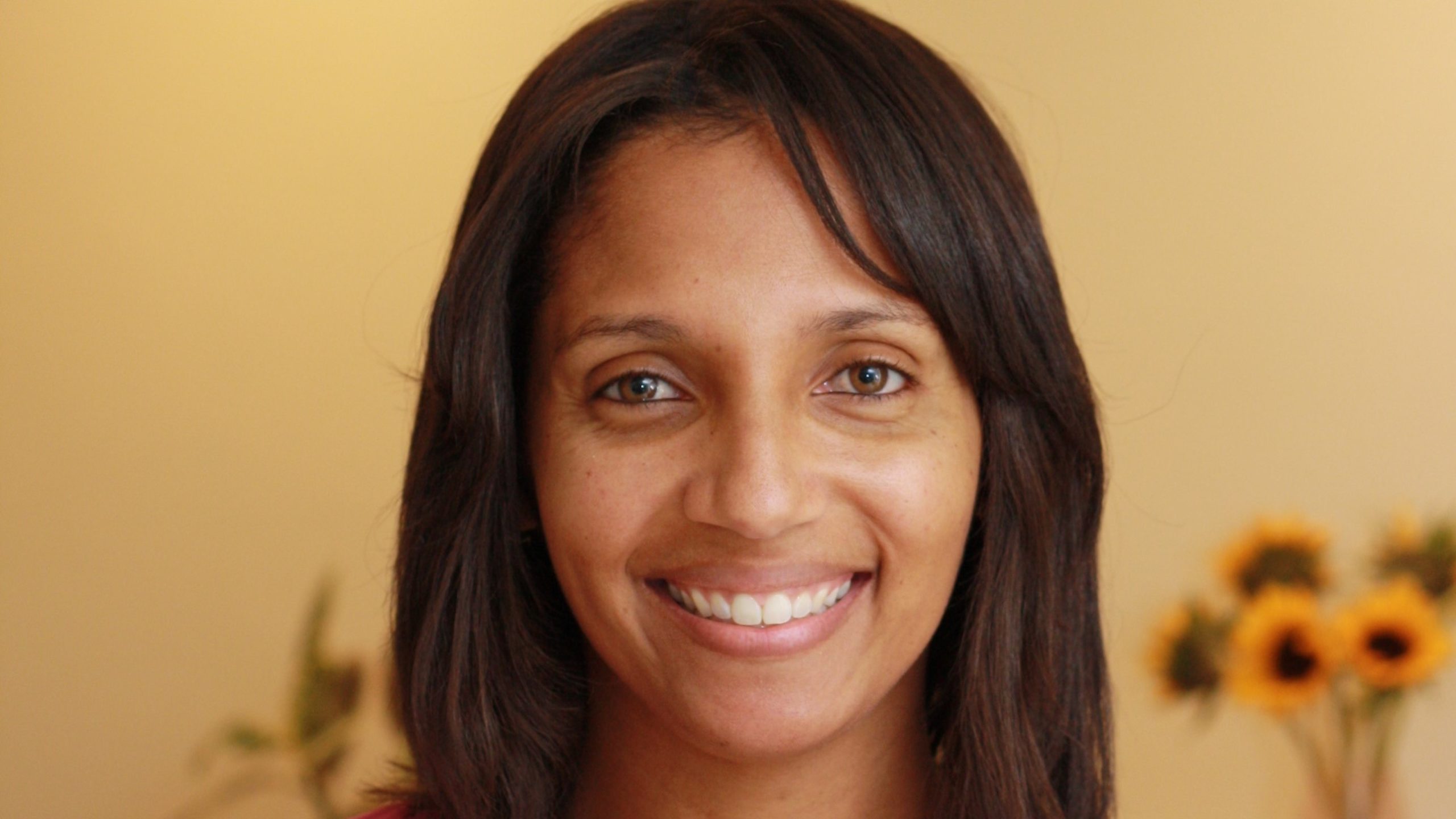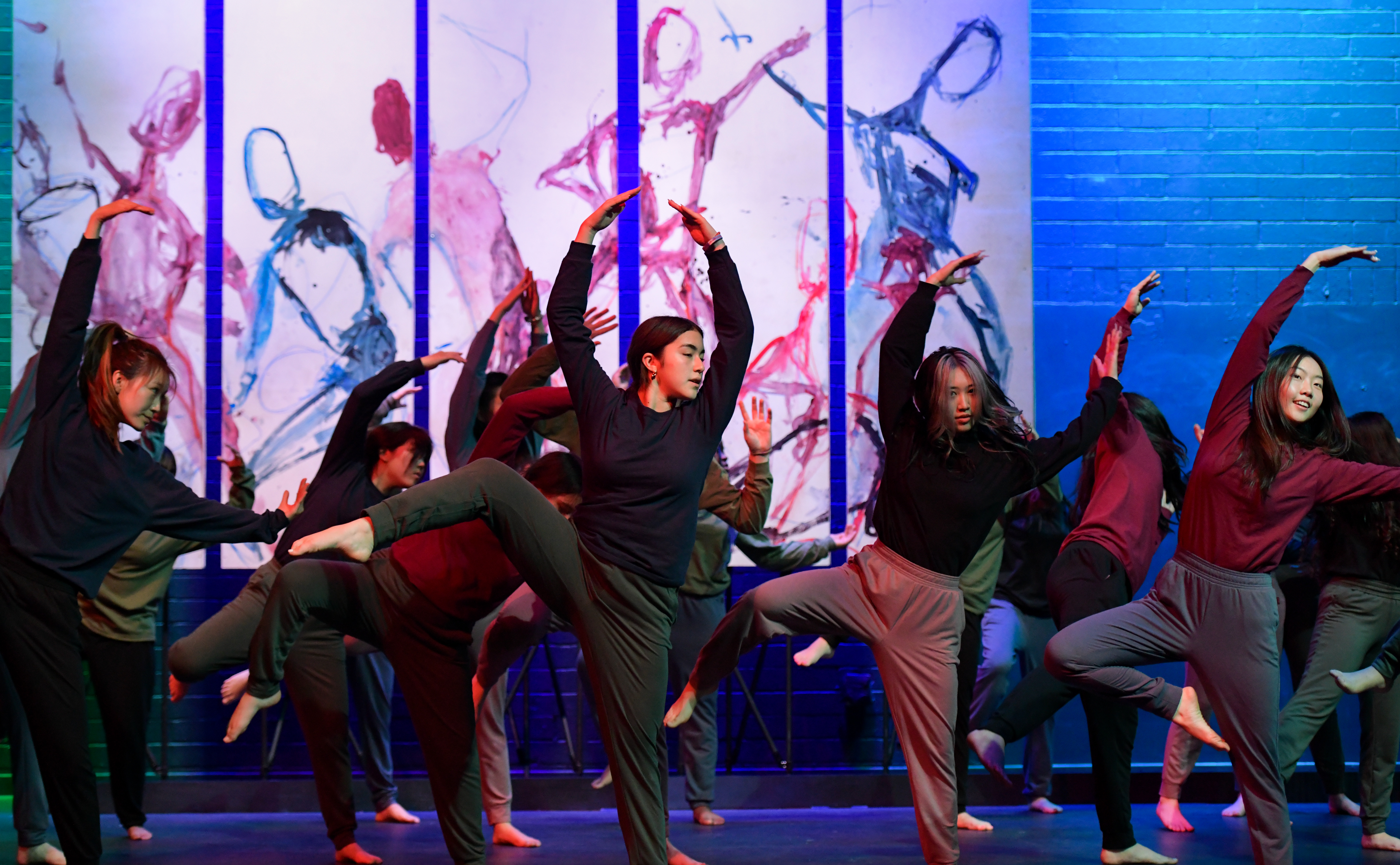22 & a Half Minutes with Nadia Del Grande ’02

When you fly, have you ever considered how much time and preparation goes into your airplane seat? Nadia (Gomez) Del Grande ’02 leads a team of engineers that integrates and certifies commercial airplane seats — ranging from economy class seats to luxurious first class suites. Although Del Grande cannot give you more legroom or make your seat more comfortable, her team works with airlines and seat suppliers to ensure seats are safe for passengers through rigorous testing and evaluation. Before joining Boeing, where she has worked for the last 13 years, she studied mechanical engineering at Stony Brook University in Long Island New York, and later earned her master’s degree in mechanical engineering from the University of Washington. When she reflects on her time at Webb, Del Grande remembers how a teacher helped her value authenticity and find her confidence — lessons she now shares with mentees of her own. Here, she reflects on her career and some of those lessons.
Q & A
How did you discover this career path?
If I’m being honest, I discovered this career path by chance. When I graduated from college, I knew I wanted to be back on the West Coast. Boeing was attractive to me because of its location in the Puget Sound, because airplanes are fascinating, and because I’ve always liked a good challenge.
Good mentors helped guide my career. About five years after I started working, I felt restless and reached out to a mentor of mine. That mentor said, “You should try seats. It’s exciting, it’s challenging, there’s travel, and you will learn a lot.” They were not wrong. My work in seats has kept me intrigued and has given me countless opportunities to grow technically and lead people ever since.
What does working in seats involve at Boeing?
The engineers on my team work closely with engineers at seat suppliers to validate detailed design and collect test data to show seats are compliant with all regulatory and integration requirements. Every inch of the seat is meticulously evaluated to ensure that it does not harm a passenger in flight, or in the rare case of an emergency. Most people are surprised when they learn how much testing an airplane seat goes through.
We also work closely with our airline customers since they are typically heavily involved in the design, look and feel of their seats. It’s exciting to work closely with airlines on a product they care so much about. Airlines often utilize seats to differentiate themselves from their competitors.
Do you feel like what you studied in college prepared you for this role?
Yes. Mechanical engineering gave me a technical foundation and sharp analytical skills that I have put into practice in my daily work. Everything I have learned about airplanes, I learned from my various engineering roles and from aerospace experts. My leadership skills came from lots and lots of mistakes, reflection, practice and trusting my gut.
What do you like most about working in aerospace engineering?
Aside from the fact that aerospace is an interesting and complex field with a wide range of career opportunities, I’m like a kid again when I see a plane in the sky! There is no better feeling than when I look up and see a plane approaching Seattle that I know I worked on.
What do you find most challenging about your job?
Honestly, I love what I do. I enjoy it and I’m passionate about it. The biggest challenge right now is managing a team of people through one of the most difficult and uncertain times in commercial aerospace history. My team looks to me for optimism, and oftentimes come to me with questions I don’t have answers to. It’s tough, but I do my best to be there for my team and focus on what I can do as a technical leader to have a positive impact.
What’s it like to be a woman working in aerospace engineering? Are there a lot of women in your field?
Engineering, like most other STEM fields, is male dominated. It’s a reminder for me of how important it is to be my best, and to help empower other women.
I love this quote by Isaac Newton: “If I have seen further, it is by standing on the shoulders of giants.” I’m proud to be a black, female leader in engineering. I am not apologetic about that. I’ve learned that I don’t need to downplay my femininity to be effective. I also recognize that there are women who have helped blaze the trail for me, and that I have a responsibility to help others.
I’ve had great mentors that helped me discover who I am and that served as examples of strong leaders for me. I encourage the women and men that I mentor to be authentic, and be proud of who they are. Love yourself, be confident in yourself, and that will help in all your interactions.
What advice do you have for students or alumni looking for a mentor of their own?
You can find mentorships in places and in people you may not expect. That person doesn’t necessarily need to have everything you’re looking for, or look like you, or have the same life experiences as you. It’s important to remember that you can learn something from everyone. Also, be willing to be vulnerable. Be willing to put yourself out there a bit and ask questions. Recognize that mentor relationships—like any relationship—require two people to have chemistry. You may find that it takes a while to find the right mentor.
Are there any teachers that stand out from your time at Webb?
The teacher I remember the most is Edwina Foster. I’ll never forget her most important lesson: be authentic. I didn’t even realize she was teaching me that until years later.
She encouraged me to be myself, be proud of that and unapologetic. By leading people and connecting with people, I’ve realized how powerful it is to be confident in who you are. She taught me that lesson through her guidance on the papers I wrote, including my chapel talk. At that time in my life I had not yet found my voice. When you’re younger, there’s a pull to fit in or emulate whatever you think is cool. She was a strong influence to be authentic, just own it, and be yourself.
What do you remember most from your time at Webb?
The most important memories I carry with me are some of the close relationships that I built, and I am lucky to still have several of those people in my life. There’s something about being young living away from home. You form close-knit relationships with people that feel like family.
Del Grande currently resides in northeast Seattle with her husband, Jon, and their twin 4-year-old daughters, Sofia and Olivia.
The Winter 2021 Webb Magazine is available online and in PDF form, you can view or download it by clicking here.



